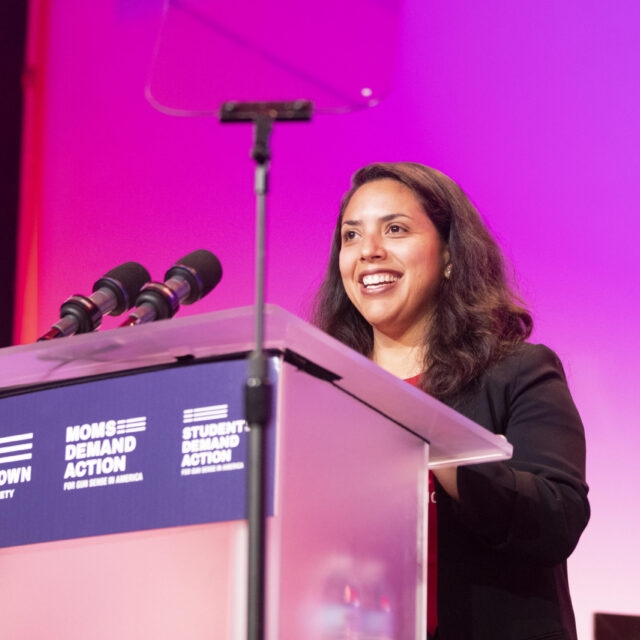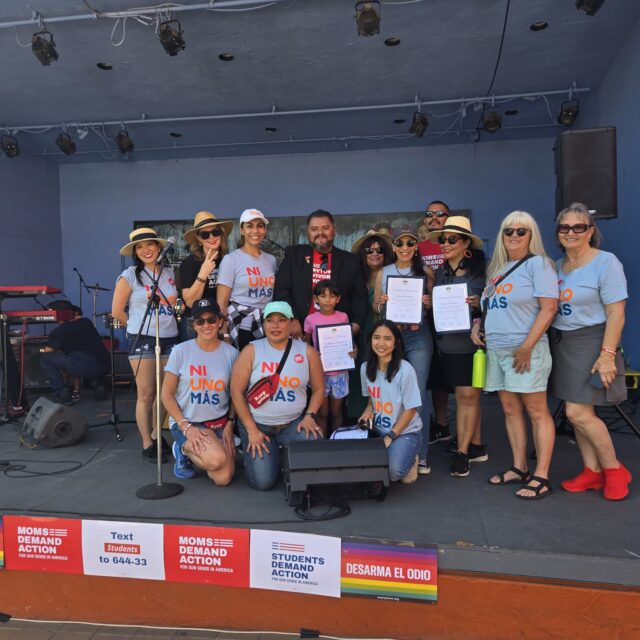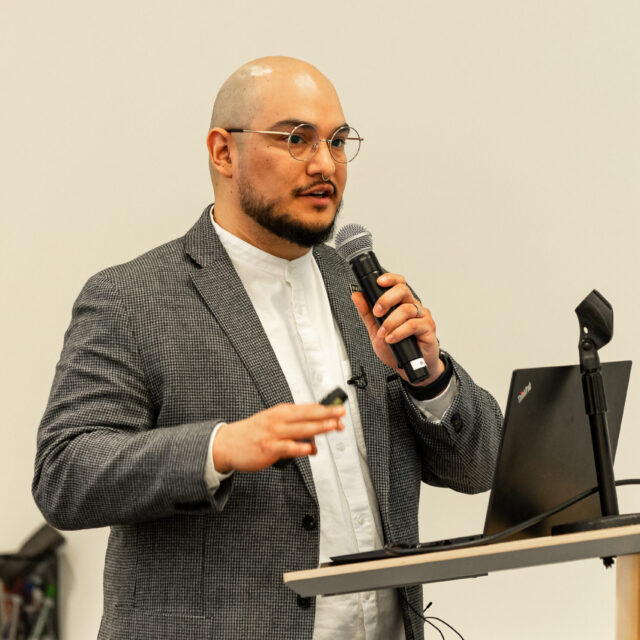Showing up for Survivors

9.17.2020
Lea esto en español
Latino Heritage Month
Observed annually from September 15 to October 15, Latino Heritage Month is an opportunity to recognize and celebrate the histories, cultures, and contributions of Latino Americans. This Latino Heritage Month, we’re elevating the voices of Latino leaders advocating for safer communities.
I was living in The Netherlands for a few years with my partner and our six-month-old daughter when the Sandy Hook shooting happened. We were visiting my family in the San Francisco Bay Area in California for the holidays, and when the headline appeared on the television, I remember thinking, “Not again.” I was truly heartbroken for the children, the educators, the parents—the entire Newtown community.

As an American expat living in Europe, I had grown used to living in a country that didn’t experience daily gun violence. I was disheartened when I saw the endless news cycle of gun violence happening back home in America. I was angry at our politicians and heartbroken for survivors, those who have personally experienced gun violence. So when I read about Shannon Watts and Moms Demand Action, I knew I needed to get involved. So I started volunteering from the Netherlands and once I moved back to the Bay Area, I joined my local chapter.
This issue impacts all of us. As a mother, the idea of sending my daughter to an American school terrified me. And as a Latina and a member of the LGBTQ community, I knew that gun violence was affecting my community at a disproportionate rate.
But unfortunately, we don’t talk about gun violence enough in the Latino community. Sadly, there wasn’t much coverage in the Latino community after the Pulse Nightclub shooting and we still don’t see enough Spanish media coverage when a Latinx trans person is shot and killed. In many of our households, LGBTQ issues are still considered taboo. And the same is true of domestic violence. Women in our community are experiencing intimate partner violence—which can turn deadly if a gun is used as a form of intimidation. But to talk openly about these issues can lead to fear of retaliation, shame, and in some cases, deportation.
But we need to learn how to address gun violence. And we need to be included in the larger conversation.
Gun violence is an intersectional topic.
Whether it’s domestic violence, suicide, school shootings, mass shootings, or LGBTQ related violence—the Latino community is being impacted by the overlap between these issues and gun violence. Our community needs to be heard.
Latino voices must be amplified.
The first step we need to make is adding more Spanish-speaking volunteers and resources to bridge language divides, gain the trust of the community, and bring more Latino voices to the movement—especially those of survivors.
We must honor survivors and their loved ones with action.
It’s the stories of survivors that I keep in mind in everything I do as an activist. Being a survivor of gun violence is a club that no one ever wants to be a part of. So when I hear a parent describe their child in the past tense—my heart absolutely breaks. We need to honor survivors and their loved ones with action—keep showing up to demand change, to support survivors in their healing, and to continue saying their loved ones’ names.
That’s the work we’re doing at Moms Demand Action. In my time with the California chapter, I’ve been surrounded by some of the toughest women in our fight towards common-sense gun laws, most of whom now feel like extended family. And I have met wonderful friends along the way through our work with community partners. Although gun violence prevention can be an uphill battle, I find comfort in knowing that both of my daughters are watching. I hope that one day, they too surround themselves with awesome women and feel inspired to fight for change.




